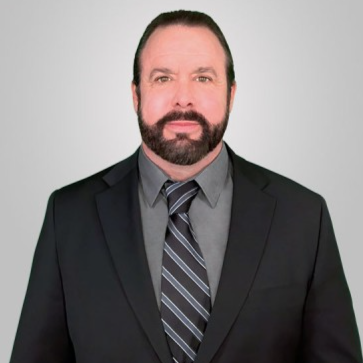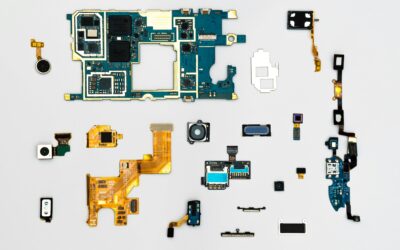Consider the Source with Vince Shorb
It’s prudent to consider the source when receiving financial education. Vince Shorb talks about how to become a more informed and educated investor!
Listen to us On
About the Episode
We focused on why it’s prudent to consider the source when receiving financial information, why so many of us struggle financially, how it’s common to Yoyo financially, how to avoid making mistakes early in life, and how to get started, with Vince Shorb, Founder and CEO of the National Financial Educators Council.
Listen to hear a difference-making tip on why personal financial success demands resilience!
You can learn more about Vince at FinancialEducatorsCouncil.org, X, Facebook, and LinkedIn.
Did you get anything out of this episode? Do us a solid and leave a review:
https://ratethispodcast.com/alignedmoneyshow
Learn more and engage at MoneyAlignmentAcademy.com, Twitter, LinkedIn, Instagram, YouTube and Facebook.
Buy George G a coffee (he loves coffee)
https://www.buymeacoffee.com/lifeblood
Have George G speak
https://moneyalignmentacademy.com/speaking/
Financial literacy and wellness for individuals, families, and companies
https://moneyalignmentacademy.com/
Find George G’s books here
The Aligned Money Show is the podcast for Money Alignment Academy, copyright 2024.

George Grombacher
Host

Vince Shorb
Guest
Episode Transcript
george grombacher 0:02
That’s to get us started. Give me two truths and a lie, please jump
Vince Shorb 0:07
in ready. But watching the show, I’m ready to stump you. So let’s go for it here. So, first one is took on a new project a few years ago just won a new hobby. And I remodeled home 95% myself, just using what I learned on YouTube and talking to my dad. Second is at 19. I was a bouncer for one of the top clubs in Newport Beach. And I did that with a fake ID because I wasn’t old enough to bounce. And the third, I earned my Master’s degree in finance in accelerated pace in five years. And from a top university.
george grombacher 0:44
Those are excellent. Vance. I’m grateful that you put some time and thought into this. You remodeled your own home. You were a bouncer at 19 and Newport Beach, the rough streets in Newport Beach, and you earned your master’s in five years from a prestigious university. I’m going to say that number three is the life.
Vince Shorb 1:08
You’re absolutely correct. As the correct lives. I thought I’d throw you that. But hey, you got it. You’re back on your streak here.
george grombacher 1:15
Back on the streak. All right. There’s a lot of good stuff here. So Did did you in fact, get a master’s degree?
Vince Shorb 1:22
No, no, I didn’t really enjoy college too much. I my teachers, oftentimes the first day of class and always asked, What’s your experience in the real world? Right? I remember one distinct, I took a class on real estate development, and said, Hey, have you ever developed any real estate or what projects have you done? He said, Yeah, I started one I went bankrupt. So he’s a teacher. Now I’m like, Okay, well, check this class off. I’m gonna take everything he says with a grain of salt. And, and most of my teachers were like that in college. So there were a few that were really good, where I was really into and pick their brain a lot. The majority, it was like, why am I learning from these people?
george grombacher 2:02
I appreciate that. So how many years ago did you do the remodel on the house?
Vince Shorb 2:07
You know, I’m I’m at the 95% mark right now. So it’s a fun project. But it’s nice to get my hands dirty. You know, back in the day, when I was going through college, she was a door hanger. So I have experienced hanging doors, I get paid $1 I got a raise to $2 a door and exterior doors. And you know, I just missed that working with the hands. So I’m finalizing the boring part now, which is the cocking in the final touch ups, but enjoyable process overall. All
george grombacher 2:35
right, two bucks a door, you gotta hang a lot of doors. Some
Vince Shorb 2:39
days, we’re slinging 100 doors, but they’re eight footers double pane glass, you know, so it wasn’t the interior light doors, their exterior heavy, you know, walking through mud, and you know, carrying these things up. Second story. So it was a good workout.
george grombacher 2:53
200 doors a day 100 doors, I
Vince Shorb 2:57
make 200 bucks a day. But on a day on a good day. Some days we’d have 30 or 40 doors. But on the good days, 100 $120 was a was a great day for us.
george grombacher 3:06
Wow. That’s awesome. I’m somebody who has who has hung probably five doors. So I know how difficult that whole process is. You obviously got really good at it.
Vince Shorb 3:18
It was it was a steep learning curve. But I got there.
george grombacher 3:23
I like it. Well, what is top of mind for you right now, that’s
Vince Shorb 3:28
in our real focus of the company of the national financial educators Council is really promoting financial wellness. And that’s always top of mind, I wake up thinking about it. How can I get people educated about money? How can I help people live a better and stronger life. And we’re really focused on just education. And right now, our big priority is scaling state by state. So now we serve every state just on a national level. We’re in 70 countries as well. But now we’re building out our state chapters, which is exciting. So we launched our fifth state chapter, Texas and Massachusetts launched concurrently. A few months ago, we have New York and Illinois launching in late April, early May. And so, you know, we’re really trying to get back to you know, it’s funny how the Internet took us all further away, right and, and through COVID we got used to this this type of communication, but I’m really feeling that people want this need for community they want they feel this need for getting local, connecting, pressing palms. And you know, so we’re trying to really build centers where people can go in have that personal connection, in relate with people on a personal level, and not the internet’s bad or anything like that. But, you know, it’s nice to shake your hand now and again, right. And that’s been our focus that’s been my driving force every morning here now and, and a big portion of that, too, is advocacy. You know, we’re Africans for promoting financial education is rules in parenting. So you know, these, these chapters are really focused on not only providing access to quality materials, but also advocating, hey, parents, let’s teach kids in schools, let’s get get them in. So you don’t do what not like I did after call you during college where you made some mistakes, get behind the eight ball a little bit and trying to play catch up early on. So so that’s really our focus. And that’s what I’m most excited about here these days. Well, that is
george grombacher 5:30
exciting. You have your work cut out for you, but just go one at a time.
Vince Shorb 5:34
There we go. That’s exactly our model here.
george grombacher 5:39
So tell me about the problem problems that that you’re working to solve? What are how are they showing up?
Vince Shorb 5:47
Yeah, I think young majority of people, if we look at the country as a whole, it’s the majority of people are going through financial challenges, a lot of them are necessary. I noticed this when I was in financial services, I spent about 15 years in financial services before founding this company in 2006. And what I found was, I would help people out, put them in a good situation, they’d be looking good, and then they would use that extra money for things that took them off course, they would come back, you know, 567 months later, I mean, the same problems I was experiencing before. And, you know, come you know, after 1000s of these kept coming around, like you know, it’s more than just fixing a problem, a lot of its behavioral and doing research, a lot of behaviors are formed at a very young age. Few studies out there point between seven and nine years old work ethic habits, and also financial habits are formed. So really, I saw this as a as a really widespread problem that starts as a kid continues through adulthood. And if we again, if we look at the country, as a whole, two thirds of people are just getting by coping or in a very bad situation. And you know, we’re in America, this is the land of opportunity. There’s so many benefits we have here. And it’s really sad to see that so many people are struggling. And so that’s really our focus a how do we help people get the skill sets early, right, and proactively address that. So they’re not getting into those early mistakes that a lot of people experience, college debt, just credit card debt, you know, making a dumb credit mistake that we all did coming out of college, you know, you forget to pay a bill Oh, no big deal. Well, seven years later, still impacting you, you know, buying a car that’s way over what you can budget. So, you know, I think there’s ways that we can help proactively help people avoid those situations, and our work. So a lot focus there with youth and kids, but we also have sort of adults who are, hey, I’m, how do I get out of the situation now that I’m in there? Or hey, I’m, I’m not struggling anymore? How do I plan for my future retirement etc, we don’t, we’re not in financial services. We don’t offer financial products, but it’s strictly education, based on the life stages they’re in, whether it be having a family, how much it costs to have family or getting married, or, Hey, I want to buy my first home, right? There’s different life stages that people go through. And the beauty of today is through programs like yours is there’s access to information, right? So we’re trying to address the behavioral side, increase that access to quality education, and also just encourage people hey, there is hope for you. It will take some time to study there’s some work that needs to be done. And even if you do everything right and get the education things may still go your way but let’s build some resiliency so you can create a better life for yourself and your family as well.
george grombacher 8:43
Well said all right, so I’m learning a lot of work ethic and financial habits from very young age 79 So that’s just observing the people I’m around that’s that’s where I’m picking these up or how does that work?
Vince Shorb 9:02
Um, observations of big ones so great insight there also we have a lot of negative influencers out there these days you know, when I grew up I don’t want to age myself and we have TV, radio and smoke signals right now that was kind of the the ways we communicated nowadays you know you have this I mean follows you everywhere targeted ads, you have really integrated advertising campaigns you have influencer network that are often showing you these this lavish lifestyle which is wonderful for them, but it’s not the what most people can afford. You have pure influencers that are all influenced by these ads by these other influencers. And now that you know just behavioral finance topic is we feel we deserve what our peers have. So we feel oh, hey, those shoes are 200 bucks, I should buy those because I deserve them. So you know this this concept of Keeping Up with the Joneses has has greatly expanded now we have a Your global connectivity here. So I think, you know, it’s observation not only from the family, but now this extended network. Additionally, personal finance and work ethic typically aren’t taught at a young age. Some states are starting to mandate personal finance in late high school, but they’ll throw in like 20 hours or 30 hours. And, you know, I mean, imagine trying to learn anything after 30 hours. So even trying to do a podcast, set up a podcast show, after 30 hours of study, you’re gonna need a lot more you need practice, you’re gonna need implementation, tweaking the camera. And same with personal finance. So it’s not taught with the rigor needed to combat all the habits that have formed, in addition is not proactively addressing them in a safe, secure space so they can make those early good financial decisions that don’t get them in trouble. Yeah,
george grombacher 10:53
I think that that’s really well said. Personal Finance is enormous. We’ve got investing and insurance and taxes and planning and so many more things. So I can certainly understand how and why I can look at that as a consumer and just say, Oh, I’m overwhelmed by it, I’ll, I’ll do that tomorrow, or next week or next year. And we don’t get a lot of content on that we get 2030 hours, which is better than nothing. All that’s true. And do I need to become a CFA or a CFP to understand and to be successful with money?
Vince Shorb 11:37
Now, for the basic foundation, I tell people hate simplified, you need income, you need to monitor and reduce your expenses. So you’re able to see on a regular basis monthly, right, that if we just simplify to one thing, are you able to save every month, after planning for not only your bills now, but also those future expenses, you need to budget for that, you know, future maybe your car is getting old, you need to buy a new one, are you putting that extra $50 A month aside for those things you need in the future? So if you’re able to plan your expenses that are occurring now and in the future, and still able to save, you’re in a good position, right? So that’s foundation level one. And really, from there, you know, things can get a little more complex, because there’s so many different types of investments and opportunities. I always tell people, hey, whatever you’re investing in, gain expert level knowledge in that, and a lot of people disagree with me, because they say, Hey, there’s professionals that can handle that there’s professionals that can do that. But just having bought a house recently, you know, I knew more than the realtor, I led the entire thing. There’s many mistakes on humbly agreement, but also the appraisal, and that I caught because I have that expert level knowledge and a game through 30 years of investing in real estate. And I think it’s important because that could have cost me you know, just doing quick math here for five grand in added fees, which is a big deal, right? So, you know, things like that I again, that in maybe not an expert level, but enough to ask good questions and enough to recognize when things are out of whack, and enough to be able to say, Hey, let me get a second opinion on this. Because I don’t think this is jiving with what I understand. So maybe an expert level is too high of an expectation, but at least enough to ask some good intelligent questions on any investment, whether it’s real estate, your stock market crypto, whatever, somebody’s into, gaining enough knowledge there, because you worked hard for that money, you’re putting in 40 5060 hours a week working. And yet a lot of people don’t invest much hour many hours into into their personal finance or studying or learning. And I always tell people, Hey, you’re you’re spending 60 hours a week working, you know, shouldn’t you allocate maybe two, three hours toward personal finance or gaining that knowledge. And after a year, you have a good foundation of any topic under your belt. And again, today, there’s so many fun ways to learn, we could watch your show, we could we can read a book, we can, you know, just scan the Internet use research. So there’s fun ways to learn that appeal to people. And of course, they go to our classes with our certified instructors. But everybody learns differently. So we have access to information. We don’t have to go to the library search for books via Dewey Decimal System, or other things. It’s it’s there and available. So that’s where I want to see people so that they when they go to sleep at night. They’re like, I know why I made that decision. I remember going back to my days of financial services, I would get calls late or emails late saying hey, I’m not certain about this now, right? I knew they were laying in bed going, Oh, I’m not comfortable in because they didn’t understand. I want people to go to bed saying, Hey, I know why I made this decision. I’m going to continue this for because it makes sense in my plan. And there’s some confidence with their decisions. So not just learning personal findings, but having the confidence to make decisions, especially when things go against them, right the ability to act. I think that’s a level everybody should be out when they are actively investing.
george grombacher 15:15
Confidence plays such a major role in success in any endeavor or field, certainly when it comes to money and being able to withstand life’s curveballs, which are inherently going to be coming.
Vince Shorb 15:29
Very true, very true. And you can do everything right. You know, I had a friend that saved me years years worked so hard as a cook for celebrities and other people. And he had this dream I knew him from the gym for about 20 years ish, and saved up COVID Hit he opened his restaurant in COVID hit right and due to know that he planned well, but it didn’t survive. Right and and so you can do everything right. In I’m hoping he’s good. Now I’ve since moved out of the state. Um, I’m hoping he’s good. But it’s one of those things, hey, there’s, there’s things like you said curveballs that do occur, you need to kind of be prepared for not only from a financial standpoint, from an emotional standpoint, which money impacts us emotionally, whether you’re doing well off financially or not. It has an emotional impact on us, and it spills over to many areas of our life.
george grombacher 16:25
The Dewey Decimal System vents, I wonder, I wonder what the cutoff is? I’m certainly I’m 45 years old. I’m certainly well versed in the Dewey Decimal System. But I don’t know if my I don’t know if the younger generation is. So there’s a pretty good list we could put together of things that the millennial generation on, I don’t know if they’d be able to navigate Dewey Decimal or drive a manual transmission.
Vince Shorb 16:48
Very, very, very true.
george grombacher 16:53
That’s a story for another day, though. Can you save money? My grandfather grew up on a farm in South Dakota during the Great Depression and the Dust Bowl served in World War Two got recalled to Korea and then went on to have a Gosh, a 30 year career with New York Life. And he would always tell me, like I can tell you if you’re going to be financially successful or not really simply, can you save money?
Vince Shorb 17:20
That’s a great, great influence there for you sounds like you had some good conversation with him surrounding money. I’m sure if some of that spilled over onto you having an influence like that, that went through some very challenging challenging times? Yeah.
george grombacher 17:32
Some? And a lot of it is. I mean, I love how that was one of the first things you said, Can you save money? And then number two is we need to gain be at an expert level of competence, as you’re just to have a working knowledge of what it is that you’re investing in. It’s great. I’m super excited when people are contributing to a 401 K at work, but how well do you understand what you’re invested in? To your point? Exactly? Can you explain to me what your target date fund is and how that’s actually working? Or how your asset whatever it is? So I think that that’s such an important thing. And that doesn’t take that long?
Vince Shorb 18:11
No, it’s funny, you mentioned that I remember back in the days when I was in the corporate world financial services, and you know, there would be a new plan that came out or some new opportunity through the company. And you see heads pop over the cubicle, say what are you doing here? Let’s go into what are you choosing what plan you choose? You know, so that’s where a lot of financial knowledge is gained through asking peers, family and other members. And that may be okay if they know what they’re doing. But you know, if it’s Bob that watches, you know, local news or train stops randomly asking him for advice, when he doesn’t know your situation, that can lead to trouble. So I like your term Working Knowledge return there.
george grombacher 18:51
Yeah. In terms of we human beings are, are, we’re always on guard, because he talked about our, our smartphones are following us around everywhere we go. And there’s an army of marketers and algorithms and this, that and the other thing, we’re interested in extracting our resources, money being one of those. And so you need to understand the source from where you’re receiving information. And I really liked the work that you’re doing with the Education Council because I view it as about as unbiased as as you can be.
Vince Shorb 19:36
Yeah, that’s been focused from day one. You know, it’s like, if somebody goes on online, let’s say they’re in severe debt, right? They go online, and they’re reading an article and says, Okay, you know, declare bankruptcy. Well, it’s written by a bankruptcy attorney. Okay. Do your next article. Okay? Do that debt payoff negotiation, okay. It’s read by negotiation, buddy, which they may be good options, but you’re getting kind of by As information in our focus from day one was, we’ll never have any national sponsor that influences any of our materials, we won’t work with credit card, online credit card companies, for adults, we won’t work with them, anything to do with them, because we know a lot of people don’t know how to manage that. You know, so we’ve been very selective with who we work with. And again, our focus has been independent resources that aligns with our we’re certified B Corporation. So we have to have a social impact model is focused not only on on our workers, our governance, but also our clients who we’re serving, we’re educating being completely transparent. So there’s no ulterior agenda or ulterior motive. We want people to gain the education, we want people know when they’re reading, we’re going to provide all the different options, hey, here’s some different options you can explore. We don’t know you, right? We don’t know you on that level. So here’s a way to do that. Now with our coaches is different, or coaches dive into somebody’s financial situation. So they’re, you know, they have more intimate knowledge of somebody so they can give more specialized guidance and education, where if you’re teaching classrooms, you’re not gonna know the 50 people in the classroom. So you have to give more, give the students some freedom to follow pathways that they know about themselves that you as the educator doesn’t. So it makes it an interesting process. But I think anytime, you know, we’re talking education, keeping the bias free, keeping it on the topic, focus and not having any alternative motives is an important piece of that. In your mind, I work a lot with plenty of services other professional, I think it’s wonderful, but our financial service, people are very transparent. Hey, I’m also financial advisor, if you want to talk outside of this great, but here in this classroom, I’m an educator, this is what we’re focused on. So there’s some trust building just through transparency.
george grombacher 21:56
Yeah, totally agree. events, we are ready for your difference making tip. What do you have for us, sir?
Vince Shorb 22:03
Well, I have a tip that I mean, I think what we discussed kind of brought up another one. And, you know, go off what you said about curveball, you know, I think you need to be resilient, especially in this day and age. Resiliency is key. You know, it’s tougher, it’s competitive. It’s, you know, yeah, we have many blessings being in this country. But there’s things that happen outside of our even as planned as we want to be, there’s things that can happen. So it’s really important to build up that resiliency muscle. And I think if people can, you know, find ways to adapt and and not only cope, but find ways to thrive and look at it as a personal challenge to overcome and just be grateful for what they do have in this current state. I think it’s a good thing, especially, you know, again, with many different things happening in the world. So I change up my tip there, but I think it was based off your point there have a life throws us curveballs and resiliency is key to deal with them. I
george grombacher 23:05
think that is great stuff that definitely gets Come on. Vince, thank you so much. Thank you so much for coming on. Where can people learn more about you? How can we engage with the National Financial Education Council
Vince Shorb 23:17
in Georgia, if you want to talk to me personally, my LinkedIn is Vince Schaub sh Orby, where you can visit our website and we work with anybody who has a passion for bringing financial wellness to their communities, whether on the educator the coach or the advocate level, we support them and provide them the training resources to do so effectively. Financial Educators Council dot o RG long name three words financial educators Council dot o RG but I love your show. George always good to see you on you’re watching the show. But even better talk to you in person here.
george grombacher 23:54
I love it. I appreciate your time and even more appreciate the rally of the work that you are doing. You enjoyed this as much as I did go to financial educate tours council.org and check out the great resources that Vince and his team are working on. Check their progress as they scale into all 50 states. And go from there. Thanks again, Vince. Finally, friendly reminder, it’s never going to be anybody more interested in your financial success than you are. So act accordingly.
More Episodes
Beyond the Bank Balance: Cultivating a Soulful Relationship with Money
You don’t need to be a Wall Street shark or a personal finance guru to develop a healthy relationship with money. In fact, most of us start with little more than a jumble of beliefs and habits passed down from our families. But if you’ve ever found yourself stressed...
How Using AI Can Help You Gain Clarity Into Your Financial Future
In today's fast-paced, data-driven world, achieving financial clarity can feel like an overwhelming task. With numerous financial decisions to make—from budgeting and investing to retirement planning and debt management—it's easy to feel lost in the complexity of it...
How AI Can Help Improve Your Personal Finances
1. Smarter Budgeting and Expense Tracking AI-powered tools like Mint, You Need a Budget (YNAB), and PocketGuard can automatically categorize your expenses, track your spending in real time, and even alert you when you’re about to exceed your budget. These tools...
Trust and Confidentiality When Using AI as Your Financial Coach: Safeguarding Your Sensitive Data
In the digital age, artificial intelligence (AI) has revolutionized many aspects of our lives, including personal finance. AI-powered financial tools have become a go-to resource for budgeting, investing, debt management, and even retirement planning. But as more...
How AI Can Be Your Personal Financial Coach: Unlocking the Future of Financial Success
In today’s fast-paced world, managing your finances can feel overwhelming. With so many options for saving, investing, and budgeting, it can be hard to know where to start or how to stay on track. Fortunately, advances in technology—specifically Artificial...
How Technology and AI Are Benefiting Investors and Consumers in Securing Their Personal Financial Futures
In recent years, the rise of technology and Artificial Intelligence (AI) has profoundly transformed the financial landscape. These advancements have empowered investors and consumers to make more informed, efficient, and personalized decisions about their financial...
10 Things New Parents Should Be Thinking About Regarding Their Personal Finances
Becoming a parent is one of the most joyful and transformative experiences in life. However, it also brings new financial responsibilities and challenges. If you’re a new parent or expecting, it’s crucial to plan ahead to ensure your family’s financial security. Here...
10 Things Newlyweds Should Be Thinking About Regarding Their Personal Finances
Marriage marks a new chapter filled with excitement and partnership. While love may be the foundation, financial harmony is key to building a stable and happy life together. To set yourselves up for success, here are 10 essential financial topics that every newlywed...
Financial Tips for New Parents: Building Stability and Security for Your Growing Family
Becoming a parent is one of life’s most rewarding experiences, but it also brings significant financial challenges. From diapers to daycare, the costs add up quickly. Whether you’re a first-time parent or adding to your family, managing finances wisely is crucial for...
Join the show.
Interested in being on the show? Tell me a little bit more about you and what you’d like to talk about!














